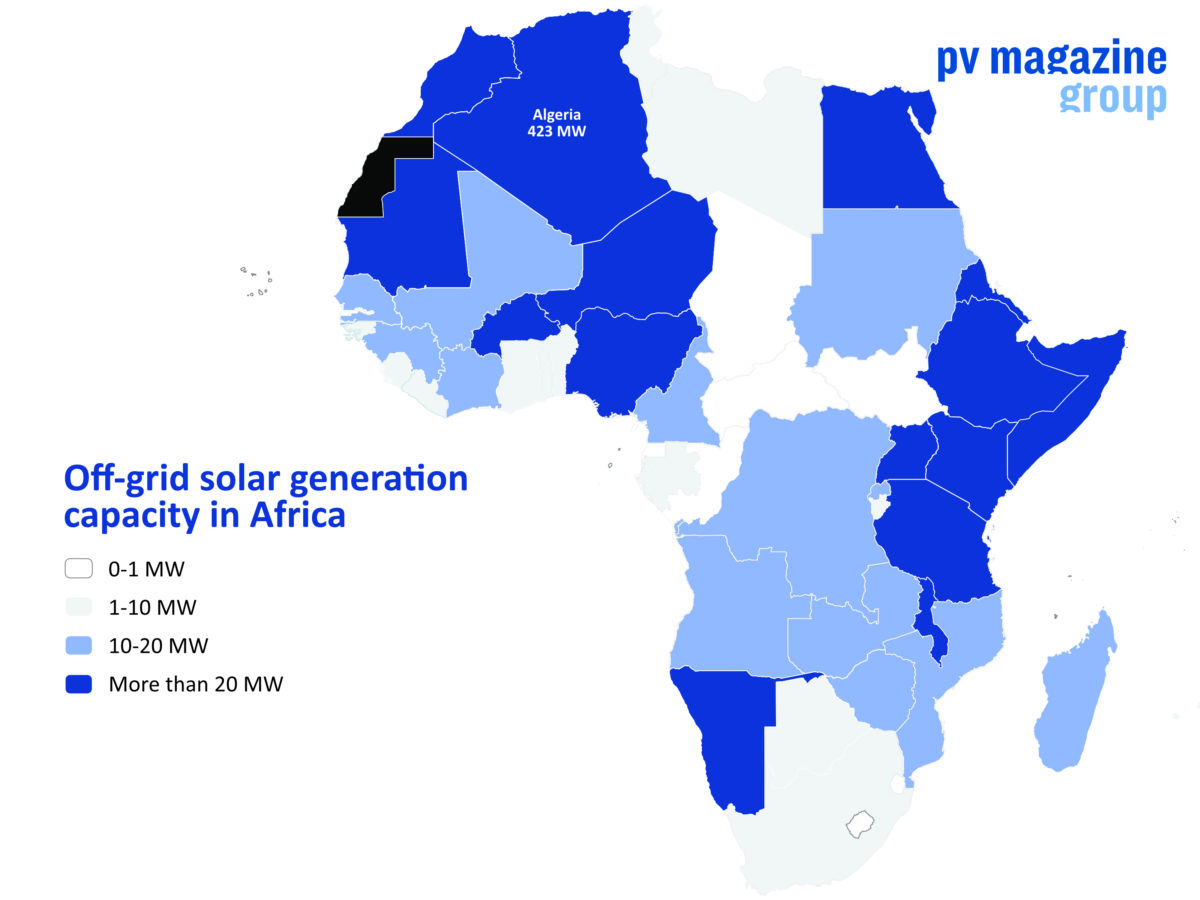A study into the challenges facing the roll-out of off-grid solar power in Africa has recommended a Sahel-wide group buying program for solar home systems in nations designated ‘fragile' by the World Bank.
The Commercial & Economic Feasibility Study for Enhancing Off-Grid Solar Inclusion in Sub Saharan Africa report commissioned by EU lender the European Investment Bank (EIB) and the India-based International Solar Alliance (ISA), divided the sub-Saharan nations with the biggest proportions of citizens without access to electricity into five categories.
Having removed 11 nations afflicted with armed conflict from consideration, the report, publicized by the EIB yesterday, mooted a solar home system aggregated buying program across the Sahel, given the nations its authors highlighted as fragile – including Zimbabwe alongside countries such as Mali and Niger – had either non-existent or very early stage off-grid solar markets.
pv magazine print edition
Pick up your copy of pv magazine today for an in-depth look at solar’s vital role in securing energy supply where conventional grids have struggled to reach. And don’t miss our In Conversation special: Over the past month, we have been in touch with leading researchers working on energy systems, solar cell technologies, battery storage, hydrogen and more; discussing the future of energy and the technologies we can expect to see a whole lot more of in the coming years.
In common with three of the other national groupings described in the study – which was carried out by Swiss development advisory Dalberg – the researchers recommended an initial focus on customers in urban and nearby ‘peri-urban' areas. The two exceptions were a grouping of Kenya, Uganda, Rwanda, and Tanzania, where it was suggested well-established off-grid solar companies could be incentivized to serve more than a million refugees in UN camps; and nations with very early stage off-grid markets but not classed as fragile. In that latter grouping, which includes Madagascar, Malawi, and Sierra Leone, the report's authors highlighted the need to kick-start the off-grid solar market by reducing investment risks and driving demand by measures such as offering product guarantees.
The report also notably dismissed the role mini-grids can play in deploying off-grid solar on the continent, citing the lack of a persuasive business model for such community systems and the widespread roll-out of individual solar home systems which has already taken place.
Popular content
Recommending more detailed deployment strategies for each of the five national groupings suggested by the report as a next step – as well as securing loans to help suppliers with working capital across the board – the study stressed the importance of some grant funding and concessional lending in a ‘blended finance' approach mixing public and private sources of investment. The need for public funds reflected the fact established off-grid solar suppliers have a tendency to want to market more products to customers with reliable payment records, leaving less affluent people continuing to live without electricity.
The 50-page report, dated June, draws upon in-depth interviews with ‘stakeholders' in Rwanda, Nigeria and Uganda including African government representatives, input from donor organizations and NGOs, and private-sector energy businesses.
With a glaring lack of input from any of those without access to electricity, or resident in refugee camps, the results of the interviews included a preference for results-based finance ahead of ‘pure' subsidy and a wariness of group-buying from off-grid solar suppliers, in both cases due to concern about possible distortions of the market. Donor entities stressed a preference for using the many existing funding streams set up to drive African off-grid solar, rather than setting up even more programs, and the report's researchers also noted representatives of the governments of Rwanda and Nigeria were more engaged in the EIB-ISA plans than those from Uganda.
This content is protected by copyright and may not be reused. If you want to cooperate with us and would like to reuse some of our content, please contact: editors@pv-magazine.com.



By submitting this form you agree to pv magazine using your data for the purposes of publishing your comment.
Your personal data will only be disclosed or otherwise transmitted to third parties for the purposes of spam filtering or if this is necessary for technical maintenance of the website. Any other transfer to third parties will not take place unless this is justified on the basis of applicable data protection regulations or if pv magazine is legally obliged to do so.
You may revoke this consent at any time with effect for the future, in which case your personal data will be deleted immediately. Otherwise, your data will be deleted if pv magazine has processed your request or the purpose of data storage is fulfilled.
Further information on data privacy can be found in our Data Protection Policy.